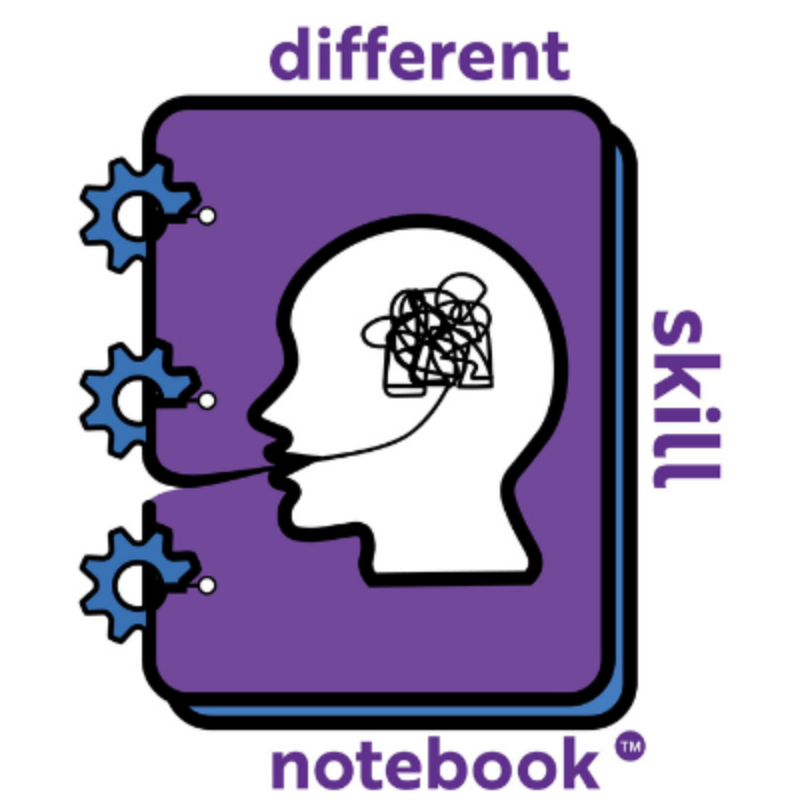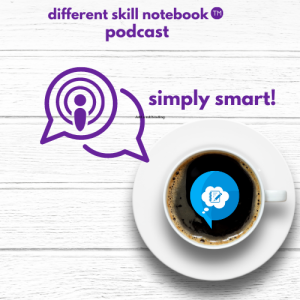
1.7K
Downloads
33
Episodes
The Social Mind Center presents the ”different skill notebook” a tool that provides strategies to build social-emotional skills resulting in social competency. Since March our world has experienced many changes with the COVID pandemic. Change is the new constant in our daily lives. Requiring us to be adaptable and adjust to the changes daily. The different skill notebook is a life curriculum for you to equip your child with the skills to communicate, connect, and build relationships for life. We want our children to have success beyond academics by acquiring skills to adapt, cope, self-manage and find purpose in life.
Episodes

Thursday Jan 07, 2021
Knowing My Needs
Thursday Jan 07, 2021
Thursday Jan 07, 2021
Knowing My Needs!
In guiding our children to find their power and voice we want to instruct and guide them in self-awareness and self-care. The first step to self-advocacy is knowing yourself and your needs. When venturing on this journey of knowing self and self care always keep at the forefront of your mind “wonderfully and purposefully made”. And the knowing self journey is more about discovering the wonder and purpose in you as a parent and in your child.
“Remember you and your child are wonderfully and purposely made.”
Ana Anselma
As I am writing this I am reflecting on myself and my journey as a parent, I am still learning to identify my own needs. Our bodies are continually evolving with age. Consider this a journey and process of self-discovery that you can experience with your own child. Explore with me understanding our needs and the ability to communicate regarding those needs. One of the most helpful and enlightening steps I took as a parent was learning about the brain and how thinking impacts behavior. This expanded my perspective on why people and children behave the way they do sometimes. Also know that:
Parenting is more about being present, patient, persistent, persevering
and never about perfection.
Ana Anselma
Story:
We all have moments or situations in our parent journey that make a lasting impression on us. When my son Nick was in 2nd grade he came home and said I am not going to school anymore. Nick was a boy of few words. He was extremely compliant, content, and seemed to enjoy attending his school. Well, the next morning came and he in fact refused to go to school. Knowing him well I knew that he always did best if when we took a step back and allowed him time to process his thoughts and feelings. And take a break like he would so often request. This way he could communicate to us why was he not going to go school again. Well much to everyone’s surprise his teachers included one week went by. After discussing with his therapist we all agreed that we needed to wait till Nick was able to share with us his reason with us. Forcing him to go to school would only escalate the situation and not allow us to resolve whatever his struggle was with school. His teachers and school could not have been more supportive. They were horrified and kept thinking it was something they may have done. The amount of stress that both Jon and I endured was so painful. We felt helpless and the waiting seemed like an eternity.
After that week Nick said I cannot write so I cannot go to school. Nick is a concrete thinker and with autism your perspective taking is challenging. He could not write so there was no point in continuing to attend school. This made perfect sense in his mind. One solution eliminate the problem which was school. After he made that statement I knew that it was going to be a process to explain to him that writing is an evolving skills and for some kids it takes longer than others. In fact, that is a the lesson here, learning is process and some of us to take a bit longer than others. The current academic demands allow very little room for changing or different paces. Since Nick started attending Bethany Christian School I always shared with them that Nick would remain at the school as long as it was a place where his needs could be met and he could thrive. I had no expectation of the school having to adjust to his needs. As a small private school I knew they did not have the resources or tools to deal with complex learning differences. The headmaster Sam always laughed at me and said what are you talking about. I took it one year at a time. I always evaluated schools by how they were a fit for my children. There are amazing school out there that offer amazing programming however, are they the best fit for your child.
Well they worked with me and we agreed on some accommodations and adjustments to his writing curriculum. We agreed that he would start his writing assignments in class and then he would have extra time to complete the writing assignments at home. His language skills gaps required more time and instruction. We would write at home several times a week and we also would focus on creative writing about things he could see. For example, we sat outside one afternoon and spent a long time admiring the oak trees in front of our house and describing their powerful qualities. This was a moment in my life with my son that I realized that he would need me advocate for him till he could advocate for himself. His learning style required that he would be allowed the time that he needs to better develop his skills. Through encouraging open communication, he is now empowered to advocate for himself and explain how language processing and expressing himself was a challenging skill for him. He can acknowledge his progress although frustrating and slow at times I always reminded him that progress is progress.
I always have seen him as a the turtle that perseveres and arrives at his pace. I acknowledged, respected and protected his pace and process. I have always advocated with him and shown him to share his needs with his teachers. His authenticity and transparency has always been surprising to his teachers. They have always worked with him as they see his commitment to the process and his consistent incremental progress. Today my son is a junior in high school and is in honors english. He is still struggling with his writing however, he is always asking for help and guidance. By doing so, he is able to make progress and compete the task at hand.
It is not our weaknesses that defeat us it is our inability to face them that can overcome us. Ana Anselma

Strategy:
1. Promote self-awareness of needs and the language (words) to identify those needs. Know yourself and needs.
For younger children focus on the more physical and concrete aspects. There are also fun ways to describe our brains as computers that need shutting down and rebooting. You can equate the body with a car that requires fuel. We want to promote respect for our bodies.
-
Body: exercise, healthy eating and proper hygiene
-
Brain: learning, focus, regulation, anxiety and stress
-
Heart: emotional regulation and mood management
2. Know what you need to fulfill your needs. Use positive, encouraging and specific language to identify and categorize smart choices for self-care.
-
Healthy/ Unhealthy:
We use healthy and unhealthy to label everything in our home. It’s less judgmental and condemning to say that is an unhealthy choice. We all make unhealthy choices however we want to encourage each other to make more healthy choices. Healthy and unhealthy can apply to more than just food. It can apply to all our choices. We want our children to know the choices that are best for them and their needs.
-
Strengths/Weaknesses:
An important aspect of knowing what you need is understanding areas where you have a skill weakness or difficulty. It is also just as important to identify strengths. We never want our children to believe that they are a sum of their weaknesses. We want them to know and understand their strengths. Also learn to use their strengths to minimize their weaknesses. Exploring passions may also identify an activity or hobby that can help build skills to minimize weaknesses.
Do not make a big deal about weaknesses because we all have them. We also have to be patient every child develops at a different pace and it is unwise to compare. Not all flowers bloom at the same time.
-
Need/Want:
Differentiate between a need and a want.
-
Calm/Chaos:
Differentiate calm from chaotic environments and situations by labeling them as they present themselves.
If your child has a learning difference make sure that they have the words to properly and positively identify their learning difference. You want your child to have the the words to describe themselves positively.
-
Clarify/Confuse:
Assist in identifying individuals that clarify versus confuse the situations. Differentiate clarity from confusion by labeling scenarios that present themselves.
Build:
Model communicating needs and seeking assistance.
Creating a supportive and encouraging environment for your child to build the self-confidence and assertiveness to ask for help or guidance.
-
Encourage and model asking questions. (Who, what, where, when, why and how?)
-
Encourage investigation to learn about themselves (body) and to seek assistance. Who can assist you?
-
identify tools and resources where you both can learn more about your bodies
-
-
Practice asking for help and/or additional information.
-
Model these behaviors for your child all the time.
Model playing, rest and leisure time:
-
Enjoy being present with your kids. We are walking and nature exploring family. Although our car pooling and driving together days were always times of sharing and unpacking our days just as well.
-
Leisure time is a time to connect and get to know each other better. Providing your kids with multiple opportunities to share with you about themselves.
-

Resources:
James, Nancy S. Self-Advocacy: Know Yourself, Know What You Need, Know How To Get It. https://www.wrightslaw.com/info/sec504.selfadvo.nancy.james.htm

No comments yet. Be the first to say something!